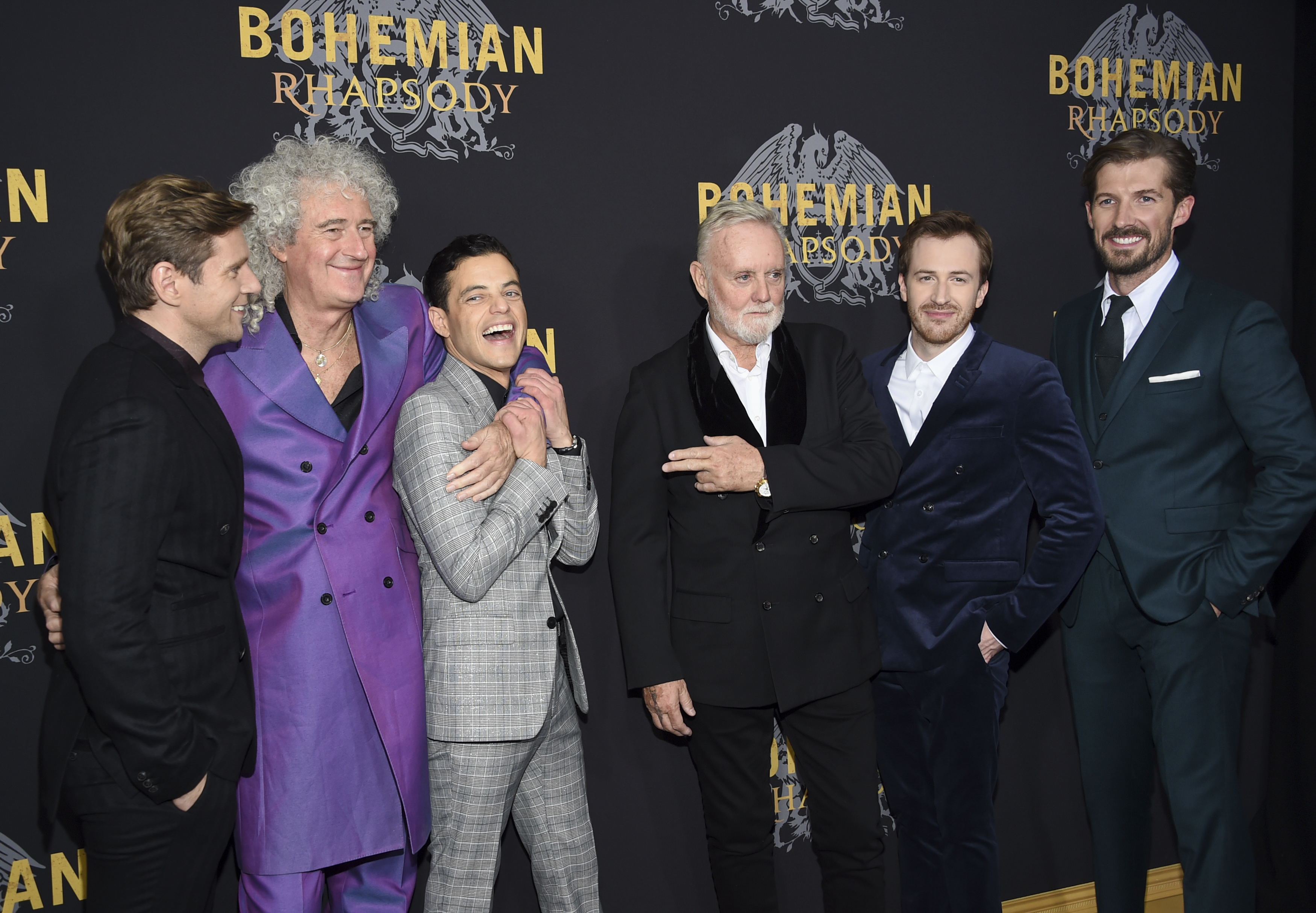“Bohemian Rhapsody” thrives under pressure
By Elizabeth Lande, Co-Copy Editor

I walked into the Admiral Theater wanting to enjoy the new Queen biopic “Bohemian Rhapsody” — I’m an avid fan of both the band and Freddie Mercury for the way in which they inspired an entire generation by being unapologetically themselves.
I exited having been thoroughly entertained. Although the movie struggled to capture Queen’s legendary persona, it is fabulous as a standalone film, a celebration of the band’s momentous impact on music.
The movie is well done, a more than decent drama about the journey of a misfit group in the ‘70s and ‘80s. It has fabulous cinematography, and every shot in the entire two-hour movie is expertly crafted.
The acting is phenomenal — I was utterly blown away by Rami Malek’s performance, and won’t be surprised if he earns an Oscar nomination in January. Malek is also supported by a strong secondary cast, most notably Gwilym Lee (Brian May) and Ben Hardy (Roger Taylor).
The film also has an extraordinary soundtrack — it’s Queen, after all — and combined the band’s original recordings with the actor’s voices.
But this blending of modern movie-making with the band’s true story has the tendency to detract from other areas of the film, ignoring what made Queen such a prolific, generation-defining band. As someone who is inspired by the near-mythic status that Queen holds, I was unable to enjoy the whole movie.
There’s a reason Queen and Mercury became and remain so famous: they truly were larger than life.
The band’s magnetism, especially Mercury’s stage presence, is nearly impossible to recreate. “Bohemian Rhapsody” certainly tried, and nailed it with the recreation of the band’s 20-minute Live Aid set. Every detail, including John Deacon’s fabulous shirt, was replicated to make the audience feel as if they were attending one of the most famous rock concerts of all time. Watching those final minutes of the film gave me chills.
However, the rest of the movie — 15 years of the band’s formation and reign — fails to match.
I took issue with the film’s portrayal of Mercury’s sexuality struggle, and how integral it was in creating the iconic figure. His early years of personal discovery are portrayed as a fast-paced, drug-fueled path, rather than a key element in his charismatic, hilariously outrageous, and wildly confident persona.
Some of my the criticisms are due to the years the film focuses on — 1970 to 1985, and ending with the Live Aid Concert. At this time, Mercury had only known Jim Hutton (Aaron McCusker), his partner of seven years when he died in 1991, for little more than a year.
The film also missed the target regarding Mercury’s AIDS ordeal. Though the movie mentioned it and showed the effect AIDS began to have on him, it was conveyed inaccurately — Mercury wasn’t diagnosed with HIV until well after Live Aid.
For me, though, the biggest failure of the film was in the poor dynamic within the band. This plotline built up to a fabricated scene in which Mercury broke up the band to pursue his solo career to the tune of $4 million.
While Mercury enjoyed a notable solo career, with hits such as his rendition of the Great Pretender, the band never broke up. In 1983, they mutually agreed to take a break from rigorous touring, but remained in close contact, releasing their album “The Works” in 1984.
The film takes the more dramatic route, which works theatrically, but rips the heart out of both the real band and the film, especially as it focused heavily on the theme of family.
It covers Mercury’s complicated relationship with his parents, and the home he found in his bandmates as they stick together from difficult beginnings to world fame.
The movie shows this dynamic crumbling apart as Mercury begins his exploration of drugs and alcohol. May and Taylor are shown as the band’s grounding force, attempting to save their friend him from himself. John Deacon (Joe Mazzello) is thrown in almost as an afterthought, despite his exceptional musical talent.
Mercury may have needed some saving — the negative effects of substance abuse are plain enough — but the reality is much more complicated, and each one of them made their fair share of poor decisions.
In fact, the movie’s shortcomings can be attributed almost solely to this over-simplification. Without Queen to compare it to, the movie is a fantastic tribute to a band’s music and personal journey of discovery. With Queen, the film is covered by the band’s shadow of greatness.
Is it a good movie? Yes. Is it a film that can live up to its topic? Not exactly. Still, I’d recommend swinging by a theater to see it, especially if you enjoy the music, but chances are that Queen fans won’t be rocked.
4 out of 5 stars
